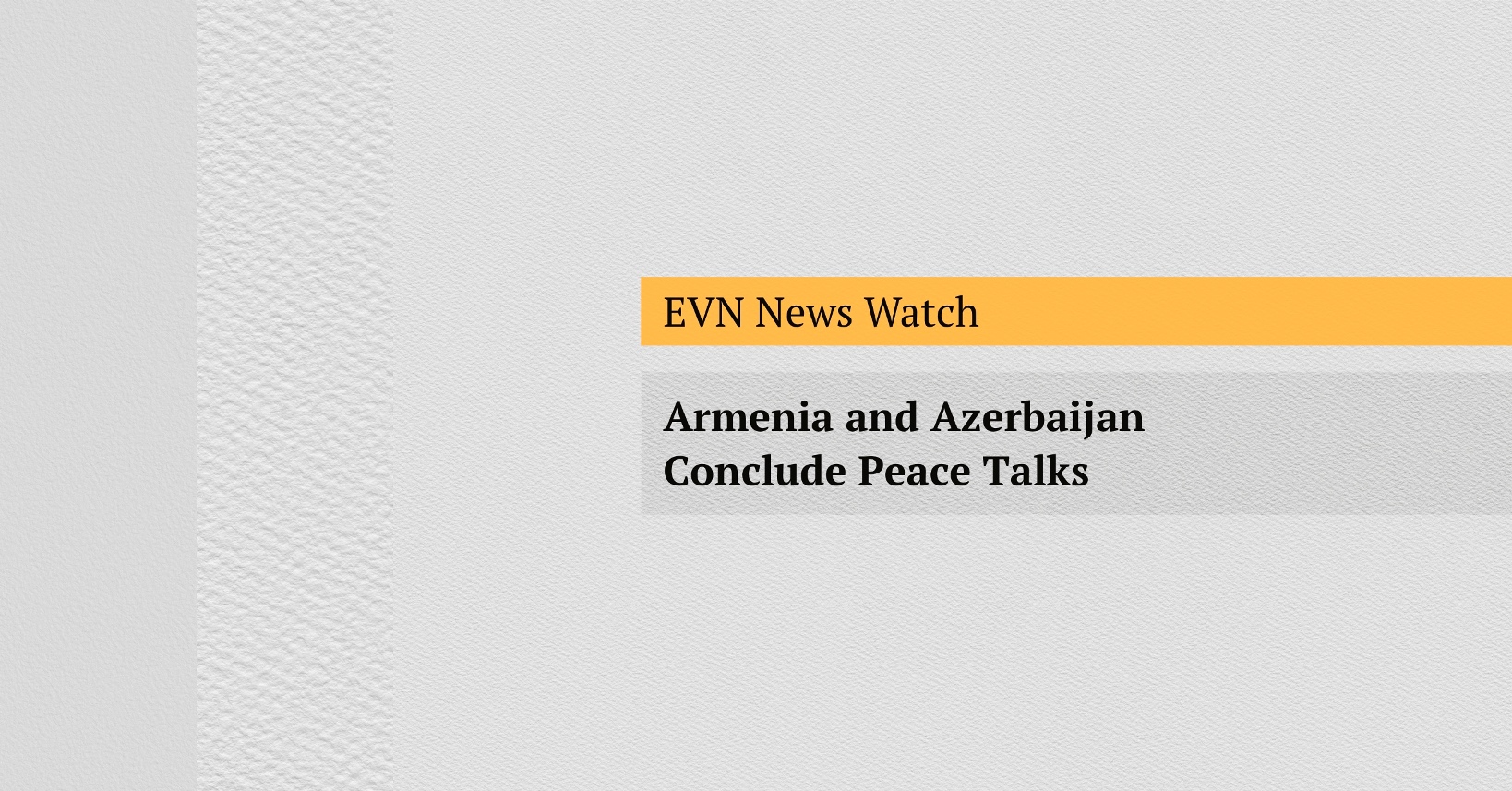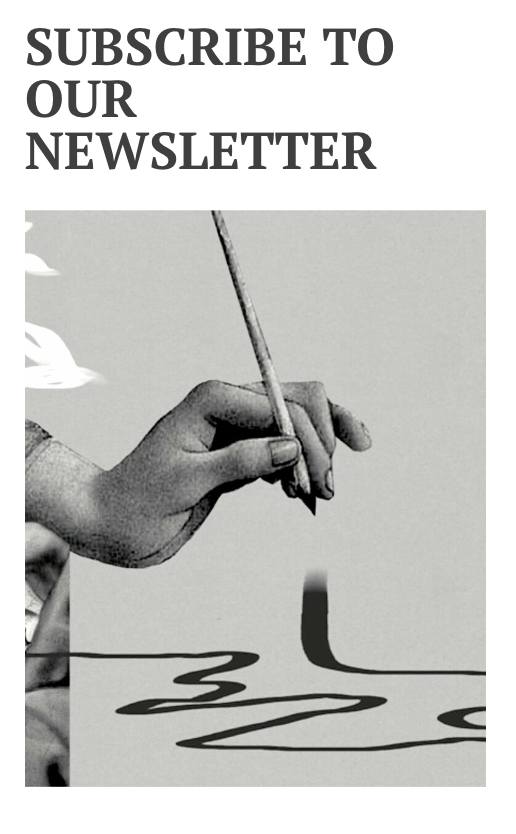
Listen to the article.
On March 13, Azerbaijani Foreign Minister Jeyhun Bayramov made a surprise announcement when he told reporters in Baku that Armenia and Azerbaijan have completed negotiations on finalizing the text of a peace agreement. He said Yerevan has accepted Baku’s proposals regarding the last two disputed points of the agreement. Bayramov was quoted as saying that “In the next phase, Armenia must eliminate territorial claims against Azerbaijan in its Constitution, and the remnants of the Minsk Group should also be abolished.”
Armenia’s Foreign Ministry responded in a statement, confirming that Yerevan has accepted Baku’s proposals on the two unresolved articles of the draft agreement. Armenia had proposed issuing a joint statement on the finalization of talks, but Baku “preferred to make a unilateral statement.” The Armenian MFA said the peace agreement is “ready for signing” and expressed readiness to discuss the time and venue for the signing.
Azerbaijan’s Foreign Ministry responded by reiterating its “long-lasting and principled position” that Armenia must eliminate the claims against Azerbaijan’s sovereignty and territorial integrity enshrined in its constitution as “a prerequisite to allow the signing of the negotiated text.” It also stressed “the necessity to formally abolish the obsolete and dysfunctional Minsk Group and related structures of the OSCE.”
The two unresolved articles of the draft treaty were publicized by Azerbaijani state-linked media in November 2024. Prime Minister Nikol Pashinyan confirmed to reporters in Yerevan shortly after these announcements that one concerns “not deploying third-country forces along the border, and the other concerned the mutual withdrawal of claims from courts and not taking actions against each other.” Azerbaijani officials have specifically pointed to the EU’s monitoring mission in Armenia (EUMA), whose mandate was recently extended. Security Council chief Armen Grigoryan said in late February that the provision is “a general wording about the presence of third forces, which can pertain to the EU too, but there is no specific mention of the EU monitoring mission.” Pashinyan stressed that these provisions will enter into force only after ratification. Foreign Minister Ararat Mirzoyan told parliamentarians on March 14 that after the agreement is signed, ratified and enters force, “we will reach acceptable and mutually beneficial solutions with our European Union partners regarding cooperation with the civilian mission.”
The peace treaty does not address unblocking of transport links, namely what Baku calls the “Zangezur Corridor”. The two sides had announced last August that the issue had been removed from the draft agreement. Pashinyan told reporters that Yerevan is ready to unblock transport and economic routes within its sovereignty, jurisdiction and territorial integrity.
Pashinyan also confirmed that the agreement does not address the question of Armenian POWs and detainees in Baku. Earlier yesterday, Azerbaijani presidential advisor Hikmet Hajiyev had stated that Yerevan must “closely cooperate with the ongoing court process in Baku” if it wants peace.
Pashinyan reiterated that Armenia’s Constitution does not contain territorial claims against Azerbaijan or any other country. He also insisted that Yerevan does not discuss internal matters with Azerbaijan. A few weeks earlier, in a televised address on February 19, Pashinyan had made his case on adopting a new Constitution as past ones lacked legitimacy. Justice Minister Srbuhi Galyan told reporters the next day that the government intends to have the draft text ready by the next parliamentary elections, set for 2026. Security Council chief Armen Grigoryan denied claims that it is being done under Azerbaijani demands and called it a domestic matter.
Speaking at a forum in Baku yesterday, President Aliyev said Azerbaijan has no trust in the words of Armenian officials. “We need documents, we need papers. We need their constitution to be free of territorial claims against Azerbaijan. It still contains territorial claims against Azerbaijan,” he said.
Global Reactions
The announcement was welcomed by a number of countries.
French President Emmanuel Macron welcomed it, adding that “there are now no remaining obstacles to the signing of a peace treaty between Armenia and Azerbaijan, which should pave the way for a lasting peace in the South Caucasus.” A similar statement was released by the French MFA.
Iran’s Foreign Ministry spokesperson Ismail Baghaei also welcomed the announcement. He described it as a necessary and significant step toward achieving lasting peace in the South Caucasus region and expressed hope that, with the commitment of both sides to resolving disputes through dialogue and diplomacy, the peace treaty would soon be signed, leading to lasting peace and stability in the region. It was also welcomed by the Georgian MFA, which called it “a historic step toward lasting peace and stability in the region.”
German Foreign Minister Annalena Baerbock said the news is “cause for hope” and that “Armenia’s courageous concessions make this final step on the path possible.” She called on both sides to now sign the peace agreement.
The announcements were further welcomed by other EU member states, including Spain, Austria, Slovenia, Estonia, Latvia, Lithuania. It was also welcomed by Brazil.
There are no reactions from the State Department so far, but Republican Representative Joe Wilson who chairs the U.S. Helsinki Commission responded on Twitter: “I am grateful to learn that the two great nations of Azerbaijan and Armenia are close to signing a historic peace deal. The peace deal will make stability and prosperity possible for the entire region and beyond! Make South Caucasus Great Again!”
Background
Peace talks between Armenia and Azerbaijan after the 2020 Artsakh War were initially brokered by Russia with the November 9/10, 2020 trilateral statement serving as their foundation. Two additional trilateral statements were agreed upon in January and November 2021. With the Russian invasion of Ukraine, direct negotiations and EU-mediated talks emerged, culminating in a joint statement of the leaders of Armenia, Azerbaijan, the EU and France in Prague in October 2022, in which Yerevan and Baku mutually recognized each other’s sovereignty and territorial integrity within Soviet-era borders. Following Azerbaijan’s ethnic cleansing and takeover of Nagorno-Karabakh (Artsakh) in September 2023, bilateral negotiations continued, with drafts exchanged between the two sides through 12 successive “editions.”
Also see
Countering Azerbaijan’s Coercion: Armenia’s Deterrence Strategies
Azerbaijan employs coercive tactics to pressure Armenia into political concessions. Davit Petrosyan examines Aliyev's strategy, Armenia's vulnerabilities, and the risks of dropping legal claims. He argues that, beyond military strengthening, Armenia must develop its own coercive strategy targeting Aliyev’s key fears and vulnerabilities, effectively deterring Azerbaijan.
Read moreIt Has to Be Said: Another Inflection Point
Azerbaijan’s trials of former Artsakh officials are a grotesque display of autocratic legalism: political theater masquerading as justice. With blatant procedural violations and no international oversight, these trials are a tool of humiliation, retribution and political coercion.
Read moreSearching for “Western Azerbaijan”
Amid ongoing conflict and fragile peace negotiations, Azerbaijan’s narrative of “Western Azerbaijan” intertwines historical revisionism, legal arguments and war rhetoric. Exploring its origins and implications, Rasmus Canbäck examines how the narrative complicates reconciliation and regional stability.
Read more





The peace treaty between Armenia and Azerbaijan can only be understood in the context of the ambitions of the master practitioner of realpolitik , namely Turkey. The world changed dramatically in the past two weeks when the US abandoned Europe and they came to the conclusion that they have to defend them selves. This presents the biggest opportunity to Turkey since the 1950’s when they joined NATO. In a future Europe without NATO and US protection , Turkey will play a larger role which it has sought for many years.( Large military, large market, role in ending Ukraine war, stabilize Middle East). In order to do that it has to quickly “clean up “ loose ends such as the Armenian blockade and Kurdish rebellion. Don’t be surprised if Turkey starts restoring some Armenian churches and encourages tourism to ANI from Armenia. It will do this to present to Europe a clean image of a responsible, tolerant and civilized country. I suspect Azerbaijan was told to wrap up the peace negotiations which Aliyev has been dragging on for years, because Turkey has bigger ambitions. Today Turkey’s influence can be felt all the way from Western Europe , Ukraine, the Caucasus to Syria and Iraq. The response by the Armenian press has been mostly negative to the peace treaty, focusing on capitulation, occupation of Armenian territory by Azerbaijan and prisoners in Baku; all true. But I think that the critics are missing the point. This peace treaty has everything to do with Turkey’s ambitions in the new world order and secondarily about Armenia /Azerbaijan